Generative AI: In recent years, advancements in artificial intelligence (AI) have transformed various industries, from finance to entertainment. One of the most exciting and impactful applications of AI is in the field of drug discovery. Generative AI, a subset of AI, is playing an increasingly significant role in how new drugs are discovered, developed, and brought to market. This post will explore the role of generative AI in drug discovery, explaining its potential, processes, and benefits in simple and easy-to-understand terms.
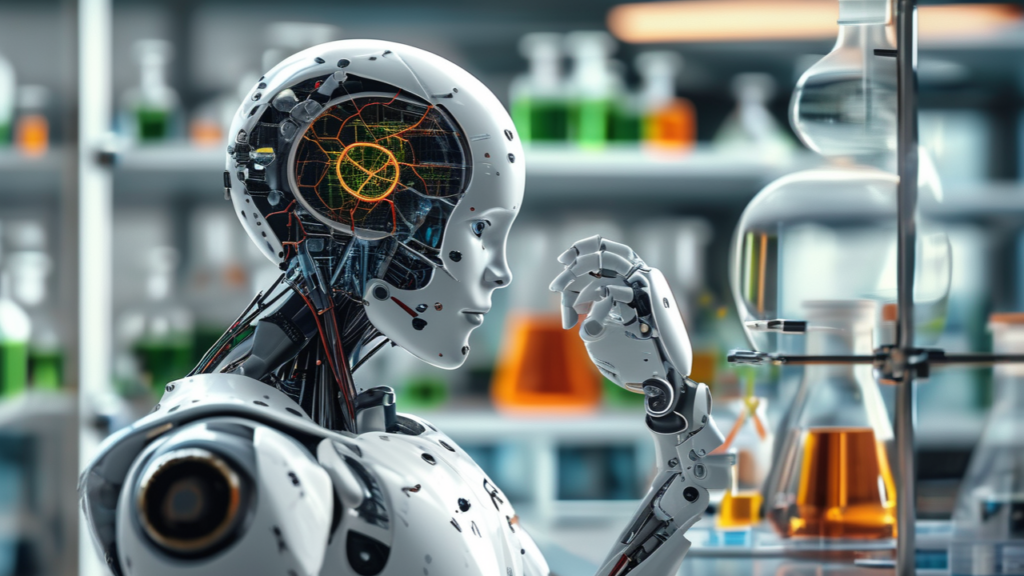
Table of Contents
Discover the Generative AI
Understanding Generative AI
Generative AI refers to a class of algorithms that can generate new data from existing datasets. Unlike traditional AI, which often classifies or predicts based on given data, generative AI can create new, synthetic data that resembles the original. This technology has been widely used in creative industries, like generating images, music, or text, but its potential extends far beyond entertainment.
In the context of drug discovery, generative AI is used to create novel molecules that could potentially become new drugs. By analyzing vast datasets of known chemical compounds and their effects on biological targets, generative AI models can suggest new compounds that may have desirable properties, such as the ability to inhibit a specific disease-causing protein.
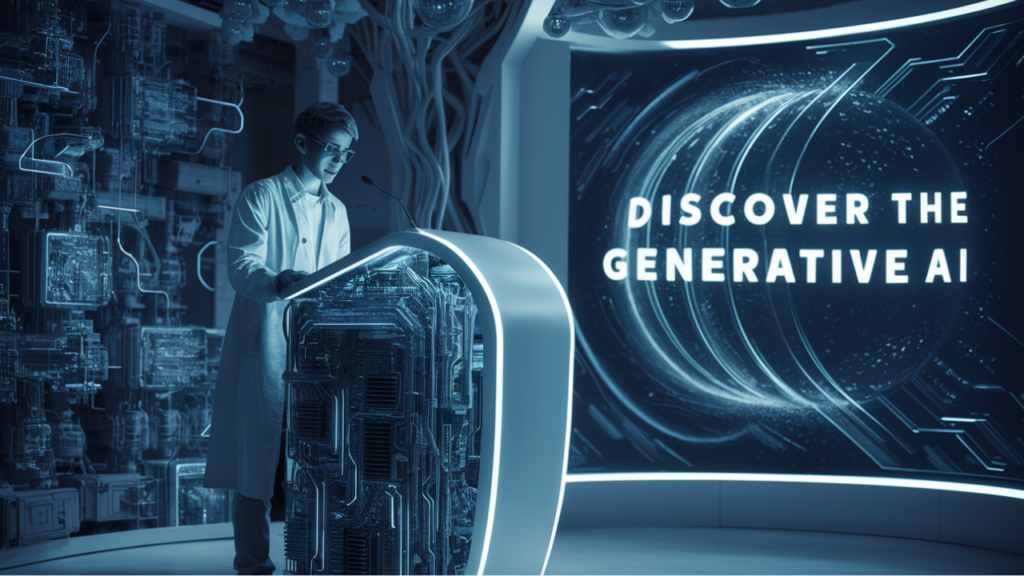
The Drug Discovery Process
Before diving into the role of generative AI, it’s essential to understand the traditional drug discovery process. Drug discovery is a complex, time-consuming, and costly process that typically involves the following steps:
- Target Identification: Researchers identify a biological target, usually a protein, that is linked to a disease.
- Lead Compound Identification: Scientists search for chemical compounds that can interact with the target, either by inhibiting or activating its function.
- Lead Optimization: The lead compounds are modified to improve their effectiveness, reduce side effects, and ensure they can be safely administered to patients.
- Preclinical Testing: The optimized compounds are tested in laboratory settings, often using cell cultures and animal models, to assess their safety and efficacy.
- Clinical Trials: Successful compounds move on to human trials, where their safety and effectiveness are tested in increasingly larger groups of patients.
This entire process can take over a decade and cost billions of dollars, with no guarantee of success. Many promising compounds fail during testing, leading to significant losses.
Artificial Intelligence (AI)
You can also read our previous post:
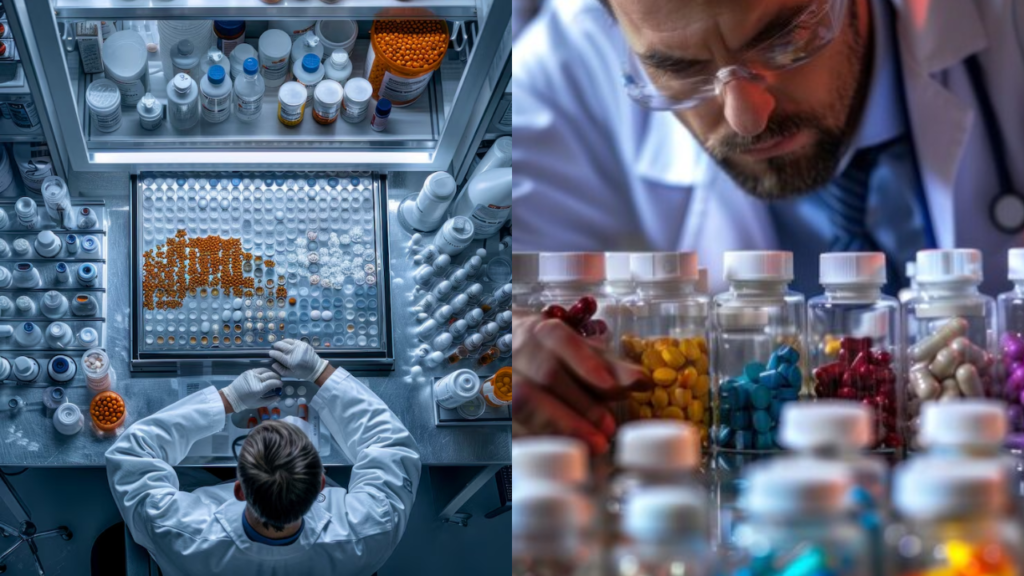
How Generative AI Enhances Drug Discovery
Generative AI has the potential to revolutionize several stages of the drug discovery process, making it faster, more efficient, and less expensive. Here’s how:
Accelerating Target Identification
Generative AI can analyze vast amounts of biological data, including genetic information, protein structures, and disease pathways, to identify new potential targets for drug development. By simulating how different proteins interact with each other and with small molecules, generative AI can suggest new targets that may have been overlooked by traditional methods.
Benefits:
- Speed: AI can process and analyze data much faster than humans, accelerating the identification of new drug targets.
- Innovation: AI can uncover novel targets that might not be apparent through conventional research.
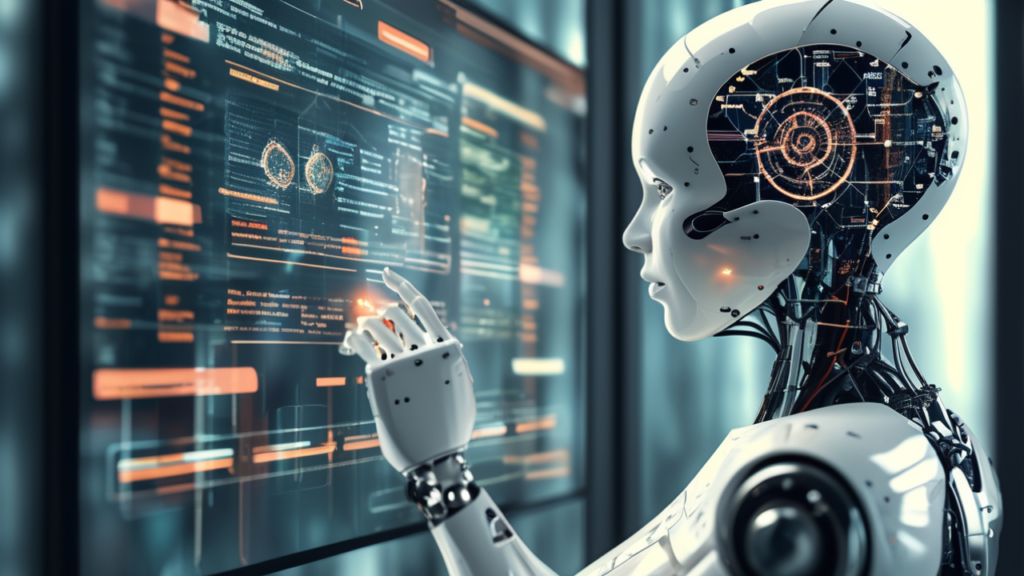
Discovering Novel Compounds
One of the most promising applications of generative AI is in the discovery of new chemical compounds. Traditional methods rely on screening large libraries of existing compounds, but generative AI can create entirely new molecules. These AI-generated compounds can be designed to have specific properties, such as the ability to bind to a particular protein or to be metabolized slowly in the body.
Benefits:
- Efficiency: AI can generate millions of potential compounds in a fraction of the time it would take to screen existing libraries manually.
- Novelty: AI can design molecules that are structurally unique, increasing the chances of finding effective new drugs.
Optimizing Lead Compounds
Once a lead compound has been identified, it must be optimized to improve its effectiveness and safety. Generative AI can assist in this process by predicting how changes to the molecular structure will affect the compound’s properties. This allows researchers to fine-tune the compound, maximizing its therapeutic potential while minimizing side effects.
Benefits:
- Precision: AI can predict the impact of specific molecular changes with high accuracy, leading to more effective drugs.
- Cost Savings: Optimizing compounds through AI reduces the need for costly and time-consuming laboratory experiments.
Reducing the Time and Cost of Drug Development
One of the most significant advantages of generative AI in drug discovery is its potential to reduce the overall time and cost of developing new drugs. By streamlining the identification of targets, the discovery of compounds, and the optimization process, AI can shorten the drug development timeline from years to months.
Early Failure Detection
Generative AI can also help identify potential failures early in the drug discovery process. By simulating how a drug candidate will behave in the body, AI can predict issues like toxicity or poor absorption before costly clinical trials begin. This early detection can prevent the loss of time and resources on compounds that are unlikely to succeed.
Benefits:
- Risk Mitigation: AI can help avoid costly failures by identifying potential problems early in the process.
- Resource Allocation: By focusing on the most promising candidates, AI allows researchers to allocate resources more efficiently.
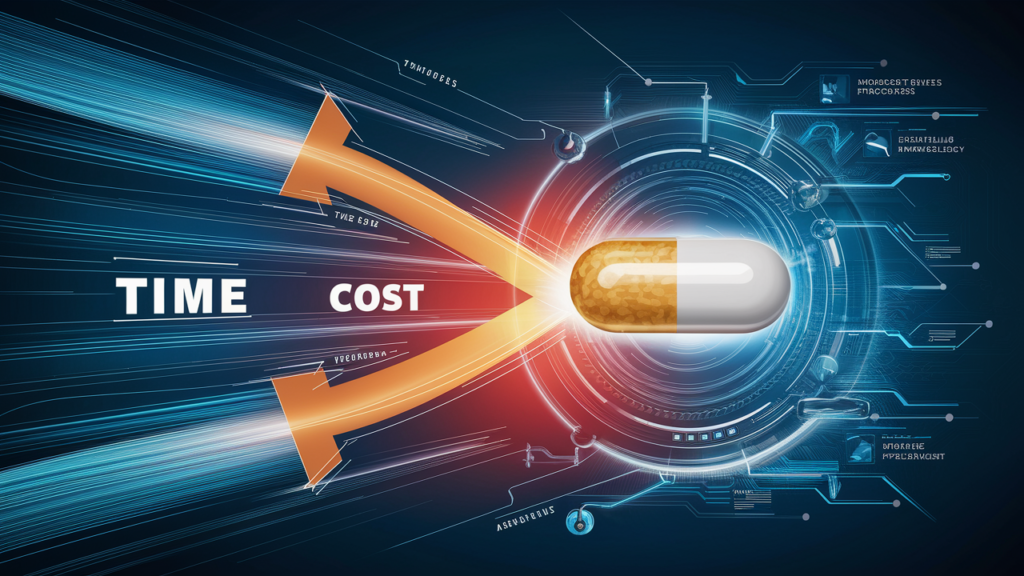
Real-World Applications and Success Stories
Several pharmaceutical companies and research institutions are already leveraging generative AI in drug discovery, with promising results. For example:
- Insilico Medicine: This company used generative AI to identify a novel drug candidate for treating fibrosis, a type of tissue scarring, in just 46 days. The compound is now being tested in clinical trials.
- Atomwise: Atomwise uses AI to predict how different molecules will interact with targets in the body. The company has partnered with numerous pharmaceutical companies and research institutions to accelerate drug discovery.
- DeepMind’s AlphaFold: While not directly generative AI, AlphaFold’s ability to predict protein structures with high accuracy complements the generative AI process, aiding in the identification of new drug targets.
These examples highlight the transformative potential of generative AI in making drug discovery faster, more efficient, and more successful.
Challenges and Ethical Considerations
While generative AI holds great promise, it also presents challenges and ethical considerations that must be addressed. These include:
- Data Privacy: Generative AI relies on vast amounts of data, some of which may be sensitive. It is essential to safeguard the privacy and security of this data.
- Bias in AI Models: If the data used to train AI models is biased, the results may also be biased, potentially leading to the development of drugs that are less effective for certain populations.
- Intellectual Property: As AI plays a more significant role in drug discovery, questions about intellectual property rights and ownership of AI-generated compounds may arise.
Addressing these challenges will be critical to ensuring that the benefits of generative AI are realized in a responsible and equitable manner.
The Future of Drug Discovery with Generative AI
The role of generative AI in drug discovery is still evolving, but its impact is already being felt across the pharmaceutical industry. As AI technology continues to advance, we can expect even greater innovations in how drugs are discovered and developed.
In the near future, we may see AI playing a central role in personalized medicine, where drugs are tailored to individual patients based on their genetic makeup and health history. Generative AI could also lead to the discovery of treatments for rare diseases that have been overlooked by traditional research methods.

Conclusion
Generative AI is poised to revolutionize drug discovery by making the process faster, more efficient, and more innovative. From identifying new drug targets to designing novel compounds and optimizing their properties, AI is transforming every stage of the drug development pipeline. As the technology continues to advance, it has the potential to bring new, life-saving drugs to market more quickly and at a lower cost, ultimately improving health outcomes for people around the world.
Next Steps
For more on the challenges of cybersecurity in the cryptocurrency space, check out our recent posts:
Author Bio
More Details: Artificial intelligence in drug discovery and development
Publisher Information
Author: Rajneesh Shukla
Publisher: AI.CodewithIndia.in
About Us: AI.CodewithIndia.in is your go-to source for the latest trech updates. We offer diverse content tailored to your interests, keeping you informed and engaged with what’s happening






